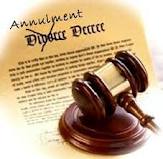 In many of my Jacksonville divorce cases I run into the all to common problem of Parental Alienation Syndrome. ParentalAlienation.org defines Parental Alienation Syndrome (PAS) as “a disorder that arises primarily in the context of child-custody disputes. Its primary manifestation is the child’s campaign of denigration against a parent, a campaign that has no justification. It results from the combination of a programming (brainwashing) parent’s indoctrination and the child’s own contributions to the vilification of the targeted parent.”
In many of my Jacksonville divorce cases I run into the all to common problem of Parental Alienation Syndrome. ParentalAlienation.org defines Parental Alienation Syndrome (PAS) as “a disorder that arises primarily in the context of child-custody disputes. Its primary manifestation is the child’s campaign of denigration against a parent, a campaign that has no justification. It results from the combination of a programming (brainwashing) parent’s indoctrination and the child’s own contributions to the vilification of the targeted parent.”
In my past Child Custody Cases in Jacksonville, I have unfortunately seen parents make degrading remarks about the other parent to the child, make false accusations to the Department of Children and Families (DCF) and refuse to comply with time-sharing agreements.
In cases where Parental Alienation is an issue the Court needs to be made aware of what exactly is occurring and the severity of the problem in order for the Court devise a remedy.







